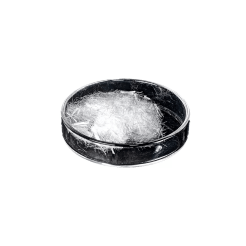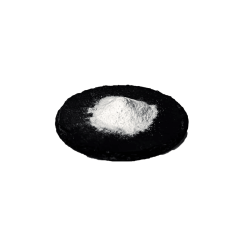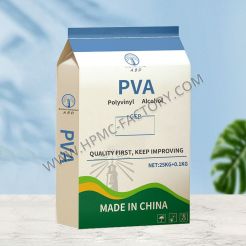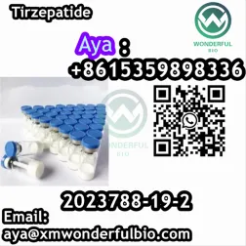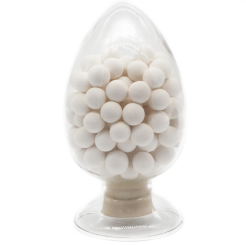High Quality CAS 67-48-1 Choline Chloride
White hygroscopic crystals, odorless and fishy smell. MP240ºC. The 10% aqueous solution has a pH of 5-6 and is unstable in alkali solution. This product is easily soluble in water and ethanol, but insoluble in ether, benzene and carbon disulfide.
Product Description
Introduction
| Product Name | Choline Chloride |
| CAS | 67-48-1 |
| Molecular formula | C5H14ClNo |
| EINECS | 200-655-4 |
| Package | 1kg/Bag; 25kg/drum or customizied |
| Molecular Weight | 139.62 |
| Chemical Properties | White Hygroscopic Crystal |
| Application | Feed Additives |
| Customs code | 2923100000 |
| Specification | 60%AS,60%SL,70%SL |
Synthesis method
1) The trimethylamine hydrochloride of choline chloride solution prepared by continuous method and a certain amount of ethylene oxide were continuously pumped into the reactor, respectively, and the residence time of the reactants in the reactor was 1-1.5h. The reaction is carried out under stirring, and the product is continuously extracted to keep the liquid level in the reactor stable. The crude choline chloride product extracted from the reactor enters the striping tower, and 60-80% choline chloride liquid product is obtained from the bottom of the tower.
(2) Trimethylamine hydrochloride reacts with ethylene oxide, then neutralizes and concentrates with organic acid to produce choline chloride.
(3) Chloroethanol reacts with trimethylamine to produce choline chloride.
The product is prepared by the reaction of trimethylamine with ethylene oxide. It can also be used to react with trimethylamine with chloroethanol catalyzed by a small amount of ethylene oxide or alkaline substances.
Physicochemical property
Choline chloride is a colorless crystalline solid. It has the following physical and chemical properties:
3. Solubility: Choline chloride has good solubility in water and can be dissolved in water to form a solution.
4. Stability: Choline chloride is a relatively stable compound that is not easy to decompose or deteriorate.
5. Acid and alkali: Choline chloride is an alkaline compound, which can react with acid to produce corresponding salts.
6. Hygroscopicity: Choline chloride is more sensitive to humidity and has certain hygroscopicity.
7. Combustibility: Choline chloride is flammable, but it will release toxic gases when burned.
Main use
1. As a feed additive, choline chloride has the following physiological effects: it can prevent fat accumulation and tissue degeneration in liver and kidney; Can promote amino acid recombination; It can improve the utilization of amino acids, especially the essential amino acid methionine, in the body. In Japan, 98% of choline chloride is used as an animal feed additive for chickens, pigs, beef cattle and fish and shrimp. Most of them are processed into powder, and 50% of the powder is prepared by adding excipients of appropriate particle size in advance in the mixer, and then adding choline chloride water solution, which is mixed and dried. Some commercial powders are also combined with vitamins, minerals, drugs and so on. Choline chloride is a vitamin B drug, used for hepatitis, liver degeneration, early cirrhosis, pernicious anemia and other diseases.
2. Choline is an important substance needed by livestock, poultry and fish. In the animal body, it can regulate the metabolism and transformation of fat, effectively prevent and treat the fat deposition and tissue degeneration in the organs of livestock and poultry, enhance the physique and disease resistance of livestock and poultry, promote growth and development, and improve the utilization of amino acids. When the lack of choline in the feed of mink, pig, rabbit, cattle and other domestic animals, it will make domestic animals stunted, rough fur and soft bones, reduce growth, and be sickly.
intro
Choline chloride is an organic compound. It is a salt compound with chloride ions and choline cations.
Choline chloride is a colorless solid, soluble in water. It has a strong taste of ammonium chloride. Choline chloride has clotting properties and can be used as a hemostatic agent. It is also commonly used as a reagent to study the cholinergic system and neurology.
In living organisms, choline is an important neurotransmitter involved in many physiological processes, including neurotransmission, memory, and muscle movement. Choline chloride plays an important role in medicine and biochemistry.
Physicochemical properties
Choline chloride is a colorless crystalline solid. It has the following physical and chemical properties:
3. Solubility: Choline chloride has good solubility in water and can be dissolved in water to form a solution.
4. Stability: Choline chloride is a relatively stable compound that is not easy to decompose or deteriorate.
5. Acid and alkali: Choline chloride is an alkaline compound, which can react with acid to produce corresponding salts.
6. Hygroscopicity: Choline chloride is more sensitive to humidity and has certain hygroscopicity.
7. Combustibility: Choline chloride is flammable, but it will release toxic gases when burned.
Storage mode
Choline chloride is an irritating and corrosive compound that requires some special precautions when stored. The following is how choline chloride is stored:
1. Storage containers: Materials with strong corrosion resistance should be selected, such as polyethylene or glass containers. Containers should be well sealed to prevent moisture and moisture from the air from entering.
2. Storage environment: Exposure of choline chloride to air should be avoided to prevent moisture absorption. The storage environment should be kept dry, cool and away from direct sunlight.
4. Avoid light: choline chloride is easy to degrade in light, and exposure to sunlight or other strong light sources should be avoided as far as possible.
5. Label identification: On the storage container, the name of the chemical, the dangerous nature, the storage date and other information should be clearly marked for easy identification and management.
6. Safety precautions: Wear appropriate protective gloves, goggles and protective clothing when storing and handling choline chloride. Avoid direct contact with skin, inhalation of gas, or digestive tract.
When storing, be sure to follow the safety operation procedures and laws and regulations.
Function and use
Choline chloride is a chemical compound.
Choline chloride is an important nutritional supplement that is widely used in infant formula and health products. It helps cells grow and function properly, maintains the function of the nervous system, and is important for the development of brain and memory function.
Secondly, choline chloride also has some applications in the medical field. It can be used to treat choline deficiency, promote choline synthesis and release, and improve symptoms. Choline chloride is also used as an activator and can play a role in the treatment of muscle paralysis.

Email: senton3@hebeisenton.com
Mob.: +86 199 4348 8906
Tel.: +86 311 6800 1160
Add.: 17th COFCOHB Plaza No.345 Youyi North Street Shijiazhuang Hebei China






